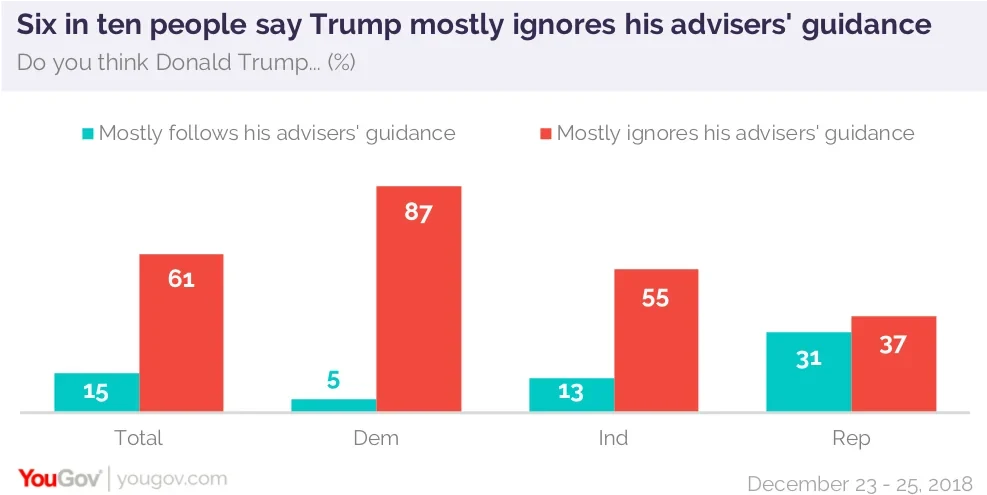Republicans (51%) and Democrats (48%) both view the outgoing defense secretary favorably
The latest Economist/YouGov Poll finds Americans divided on President Trump’s decision to withdraw U.S. troops from Syria, while Secretary of Defense James Mattis, who resigned after the President’s surprise decision to do just that, will leave his job popular with both Democrats and Republicans.
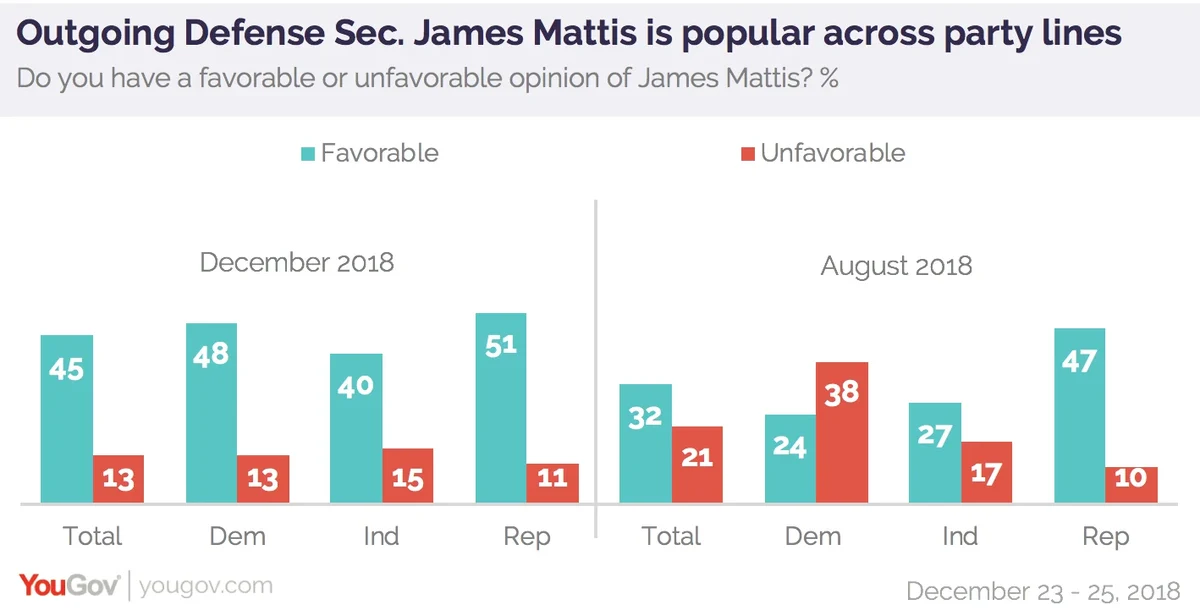
As recently as August, nearly half the public had no opinion of Mattis (though those who knew him were favorable), and Democrats were clearly unfavorable. Now Mattis is better known and better liked among all political groups. Those who have served in the military are even more positive: 75% of those who have served have a favorable view of the General, and just 7% are unfavorable.
When asked whether they approve of the way he is doing his job, 50% overall approve and only 13% disapprove of how Mattis handles the job of Defense Secretary.
Mattis has consistently been among the more popular members of the President’s Cabinet, and usually had more positive assessments than negative ones in Economist/YouGov Polls. But his resignation, which the President made effective at the end of this calendar year (Mattis originally scheduled it for February 28) has made Mattis more well-known and much more liked.
The actual decision to withdraw immediately from Syria (which Mr. Trump promised to do during his campaign) gets mixed evaluations. Nearly the same percentage (37%) oppose that decision as support it (39%). A majority of Republicans take the President’s side while a majority of Democrats do not.
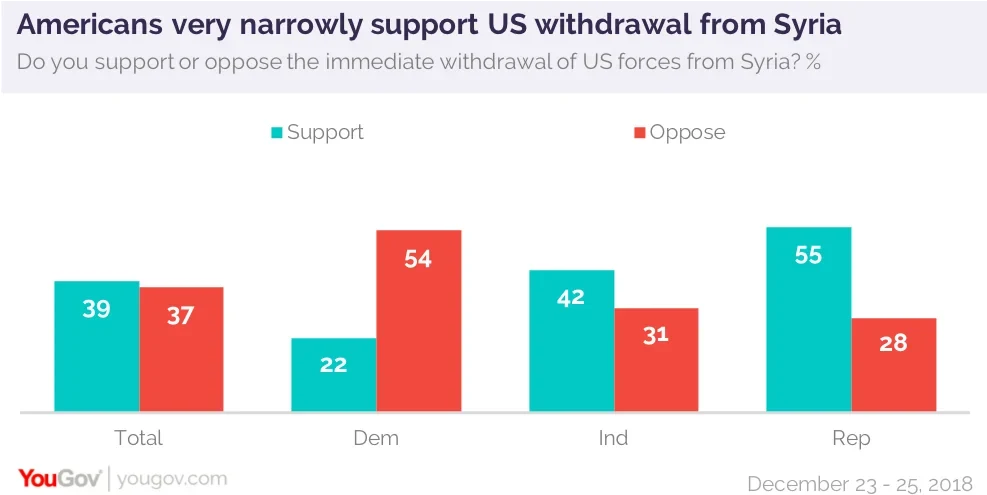
However, more Americans (41%) think the United States has a responsibility to do something about the fighting in Syria involving ISIS than say it does not (33%). Republicans are evenly divided.
When President Trump announced his Syria decision, he claimed it was because the U.S. had won that fight. The public, by better than two to one, agrees and sees the Islamic State (ISIS) as losing in Syria. Soon afterward, the President announced a major drawdown of U.S. forces in Afghanistan. That 17-year long war is not one Americans think the U.S. is winning.
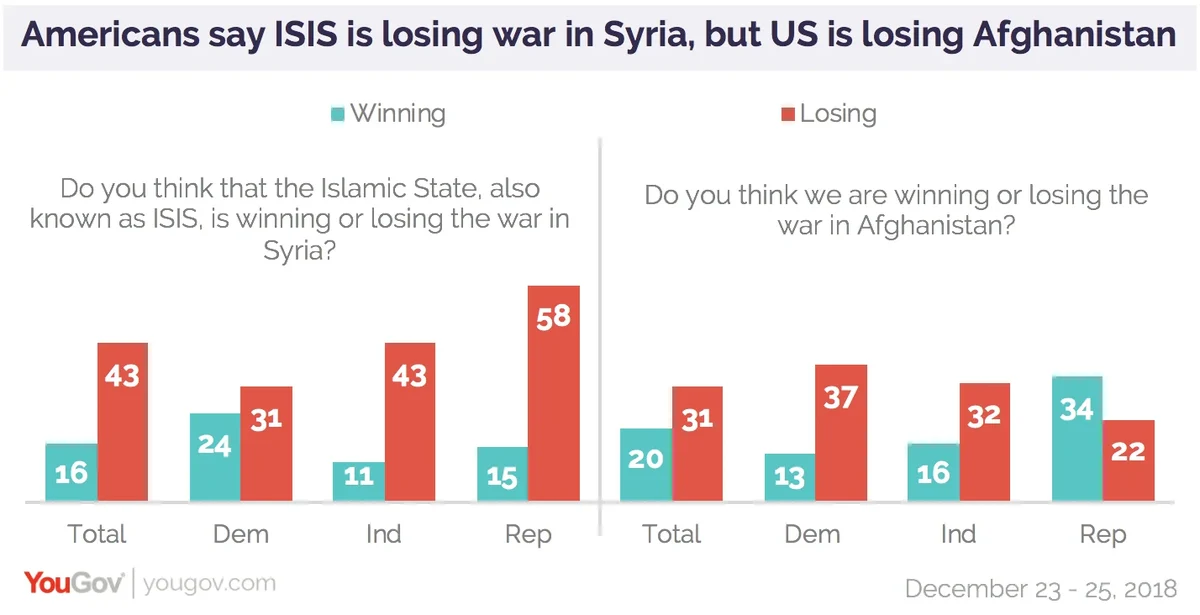
Republicans are more likely to say America is winning, but not by as large a margin as they see ISIS losing in Syria. The overall pessimism about the war in Afghanistan has existed in recent years, as the war became America’s longest war.
The President is facing trouble spots around the world, and many Americans are unsure of his plans to deal with them. What will happen now in Afghanistan is just one area of concern. Only 21% believe the President has a clear plan for U.S. strategy in that country. 51% say he does not. Half the country believes the United States is less respected in the world today than it was a year ago. Half of Republicans believe there is more respect today for the U.S, but Democrats and independents disagree.
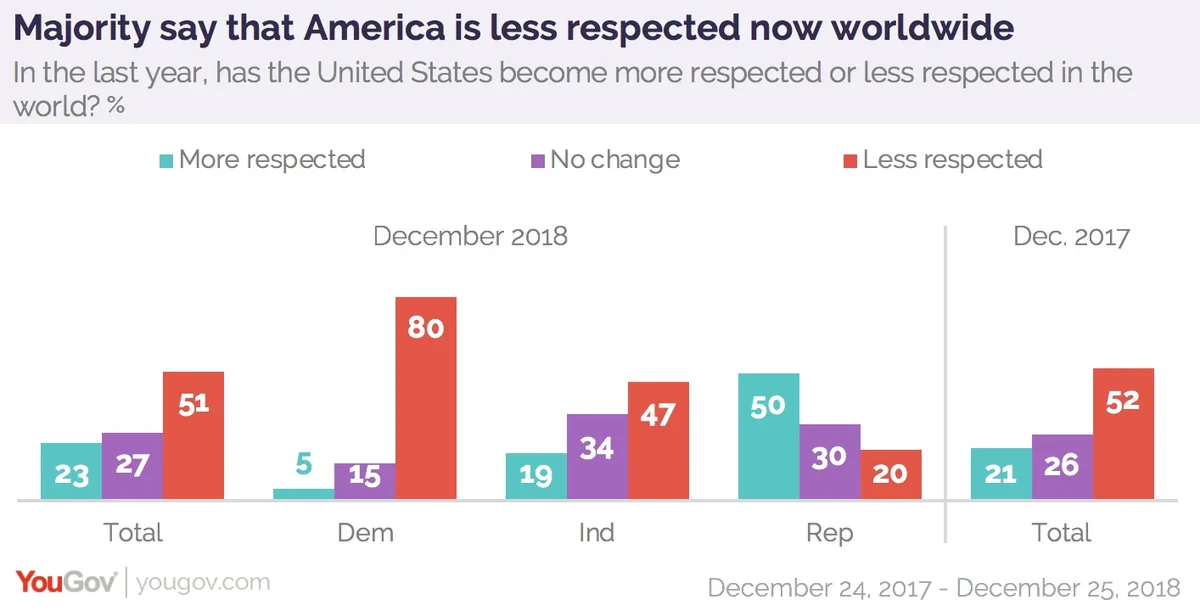
Negative evaluations of how other countries view the U.S. is nothing new. 52% said the same thing a year ago about 2017.
The conflict between Secretary Mattis and the President over Syria is a particular case in what many Americans see as the President’s unwillingness to accept advice. Only 15% overall (and less than a third of Republicans) believe the President mostly follows his advisers’ guidance. Six in ten say he mostly ignores their advice (something 37% of Republicans also believe).
